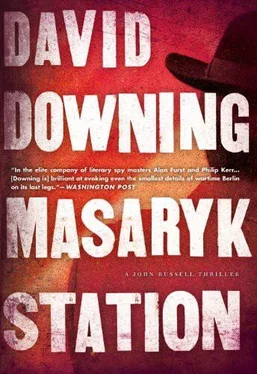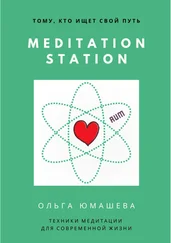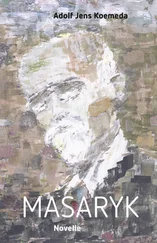David Downing - Masaryk Station
Здесь есть возможность читать онлайн «David Downing - Masaryk Station» весь текст электронной книги совершенно бесплатно (целиком полную версию без сокращений). В некоторых случаях можно слушать аудио, скачать через торрент в формате fb2 и присутствует краткое содержание. Год выпуска: 2013, ISBN: 2013, Издательство: Soho Press, Жанр: Шпионский детектив, на английском языке. Описание произведения, (предисловие) а так же отзывы посетителей доступны на портале библиотеки ЛибКат.
- Название:Masaryk Station
- Автор:
- Издательство:Soho Press
- Жанр:
- Год:2013
- ISBN:9781616952228
- Рейтинг книги:4 / 5. Голосов: 1
-
Избранное:Добавить в избранное
- Отзывы:
-
Ваша оценка:
- 80
- 1
- 2
- 3
- 4
- 5
Masaryk Station: краткое содержание, описание и аннотация
Предлагаем к чтению аннотацию, описание, краткое содержание или предисловие (зависит от того, что написал сам автор книги «Masaryk Station»). Если вы не нашли необходимую информацию о книге — напишите в комментариях, мы постараемся отыскать её.
Masaryk Station — читать онлайн бесплатно полную книгу (весь текст) целиком
Ниже представлен текст книги, разбитый по страницам. Система сохранения места последней прочитанной страницы, позволяет с удобством читать онлайн бесплатно книгу «Masaryk Station», без необходимости каждый раз заново искать на чём Вы остановились. Поставьте закладку, и сможете в любой момент перейти на страницу, на которой закончили чтение.
Интервал:
Закладка:
‘The Chinese curse,’ Thomas said, as they both walked down to the car, ‘to live in interesting times.’
To Russell’s surprise, the Plumpe stadium was packed to capacity, something it had never quite managed in all his and Paul’s years of watching Hertha. It had been a day of ominous portents, but the mood among the crowd was unmistakably upbeat. Hardship might be in prospect, but so was real change, and after the past five years that was a deal that most Berliners were more than willing to make. As Ernst Reuter, the main speaker, explained: It was about systems, not money-while the latter could conceivably be integrated, the former could not. The choice was between a Soviet Berlin and a divided Berlin-there was no third option.
Russell knew he was right, but still felt saddened at the thought of his home being sundered in two.
For Thomas, though, the glass was half-full. ‘Bastards have been running our Berlin for fifteen years. Better to get half of it back than none.’
Gerhard Strohm couldn’t remember a morning when he’d felt less inclined to go to work. He had arrived home the previous evening to a long tirade from Annaliese about conditions at the hospital; the electricity supply cuts, which everyone was quite rightly blaming on the Soviets, had necessitated a reduction in surgery hours. What sort of people, she raged, used the sick as a weapon to blackmail their enemies?
Strohm had had no answer for her then, and walking to work had none for himself. He still found it hard to believe that the Soviets intended starving the city into submission, still hoped that it was all a big bluff in extremely bad taste. As if to remind him of what was at stake, yet another American C-47 roared in across the rooftops a few streets behind him on its approach to Tempelhof. If it was a bluff, it looked as if the Allies were preparing to call it.
He didn’t think the morning could get any worse, but he was wrong. A note calling him upstairs was waiting on his desk, and Strohm knew he was in trouble when Marohn mentioned ‘the business’ at Rummelsburg. ‘You did well there,’ his boss told him. ‘So now that a similar problem has arisen again, well, the people upstairs are hoping you can repeat the trick.’
Strohm didn’t like the suggestion that he’d ‘tricked’ the workers at the railway repair shops-and, by implication, had ‘tricked’ Utermann into taking his own life-but he let it go. Worse seemed likely to follow, and Marohn was only the messenger, and so Strohm simply nodded his acquiescence, and waited for the explanation.
The ‘similar problem’ had arisen in Aue, a small town in Saxony. Railways workers there were refusing to load ore from Wismut’s uranium mines, and the Soviet authorities were hoping that their German comrades could straighten the situation out. If not, they would have to take ‘administrative measures’.
‘Why are the workers refusing?’ Strohm asked.
‘You’ll have to ask Manfred Pieck-he’s the local union leader.’
‘No relation to Wilhelm, I assume.’ Wilhelm Pieck was second only to Ulbricht in the KPD hierarchy.
‘No, but he is a Party veteran. Joined in 1926. He ran the underground in Chemnitz during the war.’
Another Utermann, Strohm thought, his heart sinking at the prospect.
‘I’ve arranged a car for you,’ Marohn was saying, as if that might make the job palatable. ‘With a chauffeur, of course.’
‘I can drive myself,’ Strohm retorted. ‘But why don’t I just take a train? If I arrive like visiting royalty no one’ll listen to me.’
‘The Soviets will, and that’s the point. They’ll only treat you as an equal if you look like one.’
Strohm knew when he was beaten. ‘All right. But I will drive myself.’
Which was easier said than done, of course. He had learned to drive at university almost twenty years earlier, but had hardly been behind a steering wheel since. People said you never forgot, but his first few miles in the shiny Horch 851 were a painful lesson in remembering. The watching faces on the pavement, he noticed, seemed universally contemptuous, though whether of his driving or his privileged status he couldn’t be sure.
According to Marohn, the autobahn would ‘whisk’ him all the way to Chemnitz, but his boss obviously hadn’t been down it recently. There were pot holes everywhere, and huge cracks in the concrete hosting columns of swaying weeds. On the bright side, it was virtually empty, and after a while Strohm began to enjoy himself, slaloming south across the crumbling surface. He loved trains, and the chance they gave you to sit by the window and watch the world go by; but there was something just as liberating about sitting alone in a car, controlling your own direction and speed. An illusion of independence perhaps, but an intoxicating one nonetheless.
Soon after six P.M. Strohm reached Chemnitz, where Marohn had suggested he spend the night. He found the local Party office easily enough, and was given a room reserved for official guests in the nearby hotel. The owner was too sycophantic for words, but both dinner and room were more than adequate. After eating he went upstairs, and read until his eyelids began to droop. As he drifted into sleep, he wondered what the next day would bring, what challenge to his conscience awaited him in Aue.
Russell woke with a start on Saturday morning, not knowing where he was. He’d been walking down a snow-covered street, with shadows lurking in every doorway, but here was Effi making gentle snuffling noises in her sleep.
Shchepkin should be in Moscow, he thought. He would probably be seeing Beria that day. Russell didn’t need to imagine the rage on the Georgian’s face when he heard what Shchepkin had to tell him-he’d seen it in the film.
From now until Tuesday, these were the dangerous days. Shchepkin would tell Beria that if he wasn’t back in Berlin by then, Russell would make his copy available to the Americans. And as Shchepkin had said, the sensible thing for Beria to do was accept the deal on offer, and for him to get used to the idea that at least one other recording of him committing murder was hidden out of reach. But would Beria be able to do this? Or would he hold on to Shchepkin, and gamble on scooping Russell up by Tuesday? In that case Beria would assume that once everyone was safely ensconced in the Lyubyanka, eliciting the location of the films would not present too great a problem. And in this he was certainly right.
Russell slipped out of bed, walked across to the window, and lifted the edge of the curtain. Since he wasn’t expecting to see anything, the car standing by the opposite kerb a little way down the street came as something of a shock. Especially as there didn’t appear to be anyone in it.
Were they already in the house, coming up the stairs?
He walked quickly through to the other room, checked that the bolts were drawn on the apartment door, and put his ear to the wood. If there was anyone out there, they were very quiet.
He went back to take another look at the car, only to find it was gone. A false alarm, he thought, but as someone wise once said, a false alarm was only a real one waiting to happen.
He woke Effi. ‘You know we talked about going away for the weekend? Well, I think we should.’
‘Why, what’s happened?’
‘Nothing yet. But it’s the safe thing to do.’
‘Okay, but where?’
‘You remember that hotel on Havelsee we stayed at, back when we were young?’
‘The one we never left. The bed we never left.’
‘That one.’
‘I can’t imagine it’s still there.’
‘The bed or the hotel?’
‘The hotel.’
‘It is. I called them yesterday, and they said they had some rooms. As long as we paid in dollars.’
Читать дальшеИнтервал:
Закладка:
Похожие книги на «Masaryk Station»
Представляем Вашему вниманию похожие книги на «Masaryk Station» списком для выбора. Мы отобрали схожую по названию и смыслу литературу в надежде предоставить читателям больше вариантов отыскать новые, интересные, ещё непрочитанные произведения.
Обсуждение, отзывы о книге «Masaryk Station» и просто собственные мнения читателей. Оставьте ваши комментарии, напишите, что Вы думаете о произведении, его смысле или главных героях. Укажите что конкретно понравилось, а что нет, и почему Вы так считаете.












